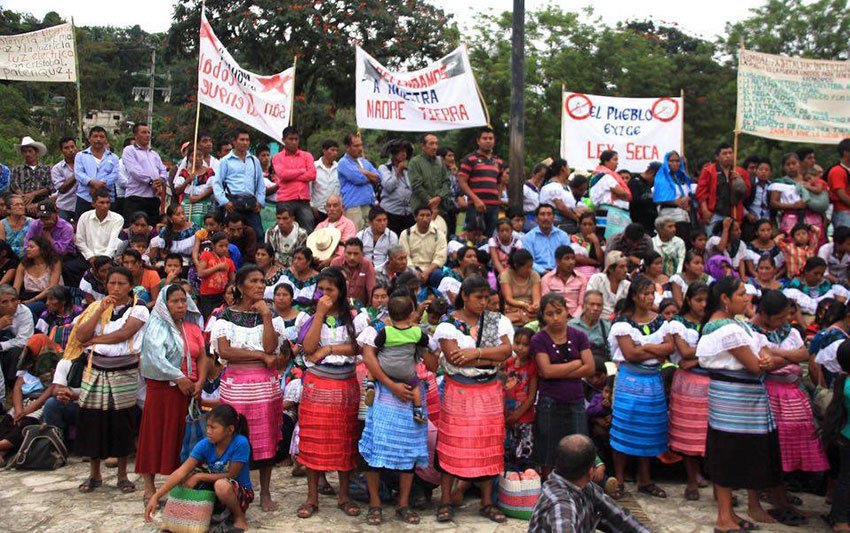
Gilberto López y Rivas
First of all, I would like to highlight the unconsulted nature of the Tren Maya mega-project among the affected populations, which include originary peoples protected by the Constitution and by international agreements, such as ILO Convention 169 and the 2007 UN Declaration on the Rights of Indigenous Peoples, which stipulate, among others, the right to prior, free, informed, good faith and culturally appropriate consultation regarding projects and actions of the State and corporations of various kinds that could affect their lands, territories, identities, cultural heritage and environment.
In this sense, the communiqué of the Office in Mexico of the United Nations High Commissioner for Human Rights (UN-HR) was very clear in calling attention to the indigenous consultation process carried out by the INPI, from November 15 to December 15, 2019, for not having complied with all the international standards on the matter, assuring that the authorities unilaterally decided the method of the process without the agreement of the communities, for which it criticized the partiality of the consultation.
For its part, the International Tribunal for the Rights of Nature, which met to hear the case of the Mayan Train, held the Mexican State responsible for ecocide and ethnocide for the violation of the fundamental rights of nature, of the Mayan people, of Mother Earth, and of the right to life and existence. It also ordered the Mexican authorities to immediately suspend the megaproject, as well as the demilitarization of indigenous territories and the suspension of the processes of dispossession of ejido land.
In the cultural sphere, the conflictual rupture within an institution whose task is the research, dissemination and preservation of the cultural heritage of the nation and its peoples is notable: the National Institute of Anthropology and History (INAH), a situation aggravated by its participation in the Mayan Train, and by serious problems within the institution, which have not been resolved. Specifically, the commitments acquired by INAH with the Mayan Train, under the control of the Secretary of National Defense, have caused the deepening of this rupture between authorities who obey the demands of tasks, times, disciplines and ways of working of Sedena, and the union of academics of the institution that has expressed its rejection of the repressive policies of the authorities against researchers who maintain critical perspectives towards the mega project, as demonstrated by the paradigmatic case of the archaeologist colleague Fernando Cortés of Brasdefer.
Likewise, it is worth mentioning opinions that consider that INAH should limit itself to one of its disciplines, archaeology, such as in the Mayan Train, and, consequently, minimize or ignore the contributions of other anthropological and historical sciences that within the institution are represented by numerous researchers, whose knowledge, specialties and opinions are not taken into account in INAH, except for those who are in favor of what is considered the anthropology of social dissuasion, which, as in the State indigenism of the past, mediates the resistances of the peoples in favor of the neo-developmentalist policies, as the current government is doing.
Also, and based on the condemnations of international organizations, ignored by the Federal Executive, it seems to me necessary and urgent to become aware of the global context in which this mega-project is embedded. This is something that the Zapatista Mayans consider to be the storm that is approaching and is reaching us, and which is neither metaphorical nor symbolic, nor does it allude to an apocalyptic vision of prophetic voices, but rather to the real and scientifically-based possibility of a catastrophe on a planetary scale. Carlos Taibo referes to it as a collapse, a general and massive collapse of the dominant system, characterized by substantial reductions in industrial production; the simultaneous and combined financial, commercial, political, social, cultural and ecological meltdown due to its own contradictions and verifiable realities that are taking place: climate change, depletion of energy raw materials, irreversible damage to biodiversity, social conditions of unemployment, poverty, hunger, massive forced displacements, exponential increase in mortality from curable diseases and pandemics, wars for raw materials, and geopolitical strategies to impose or continue the economic, political and military domination of imperialist powers in certain regions; genocides, ethnocides, ecocides, state terrorism, proliferation of nuclear weapons, collapse of mega-cities and the transition to necropolis, and the spread of criminality and criminal gangs as the other face of recolonization or militarized and mafia-like accumulation..
Original text in La Jornada on September 15, 2023. https://www.jornada.com.mx/2023/09/15/opinion/012a2pol
Translation by Schools for Chiapas.
